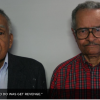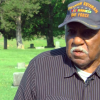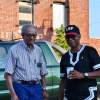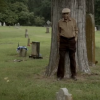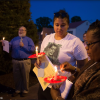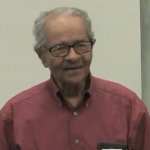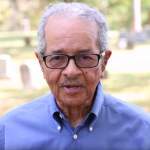Jesse Lee Bond was lynched in Arlington,Tennessee on April 28, 1939 – in broad daylight, on the town square. The authorities lied about it, and the newspapers remained silent. It took more than seven decades, but Jesse Lee Bond's 96-year-old brother, Charle Morris, finally succeeded, through persistence and faith, in bringing this murder to light. This is a story that locates itself where hidden history meets the human heart. It's really a story about all of us.
Jesse Lee Bond was a 20-year-old African American cotton farmer came to the S.Y. Wilson Store to buy planting supplies. the store kept a ledger of purchases, loans and interest owed. After his purchase Bond asked for a receipt, an argument followed, but finally, Sam T. Wilson, the store cashier, reluctantly gave him a receipt. When S.Y. Wilson, the store owner and Sam Wilson’s father, Charles Robert Wilson. were told about the incident they became enraged. The immediately sent Sam Wilson to bring Jesse Lee Bond and the merchandise back to the store.
Bond returned with his Aunt Luanna Bond. As soon as the two of them entered the store, Charles Robert Wilson and his friend and co-worker, William “Bud” Johnson started shooting at Jesse. They chased him out of the store, and with the help of others caught Bond. they brought him back go the town square and in front of the store they sjhot him to death, castrated him and then dragged his body behind a truck to the Loosahatchie River, where they staked him to the bottom. The body was “found” by authorities five days later. On the death certificate, the coroner said the victim “fell into the Hatch River and was accidentally [sic] drowned.”
The funeral and burial at Grays Creek Church attracted a large crowd, many from neighboring counties who were there to protest the actions of the white authorities. No stone was placed on the grave. It remains unmarked today.
Legal records from the Shelby County archive show that Charles R. Wilson and William Johnson were charged with first-degree murder and tried before a jury. A brief article in the January 23, 1940 issue of the Commercial Appeal indicated that the two men were quickly acquitted.

